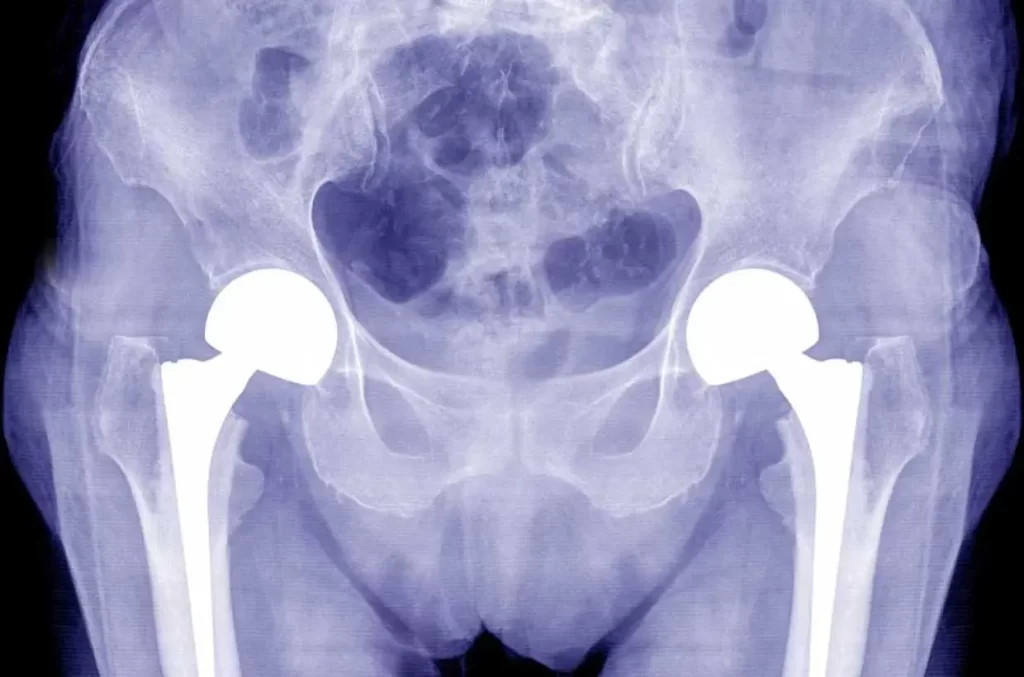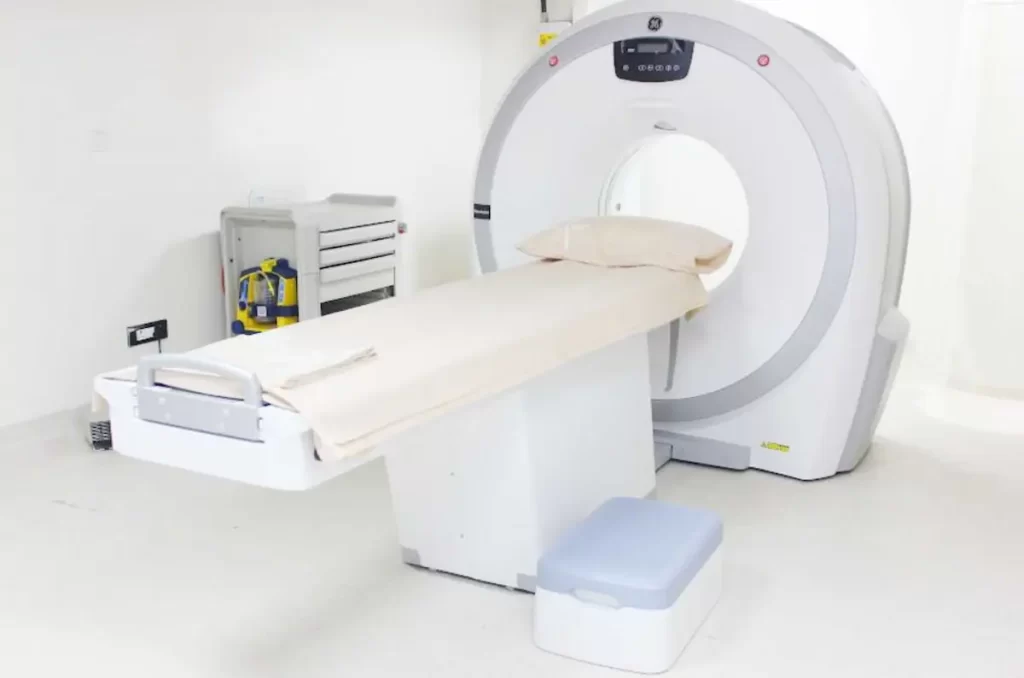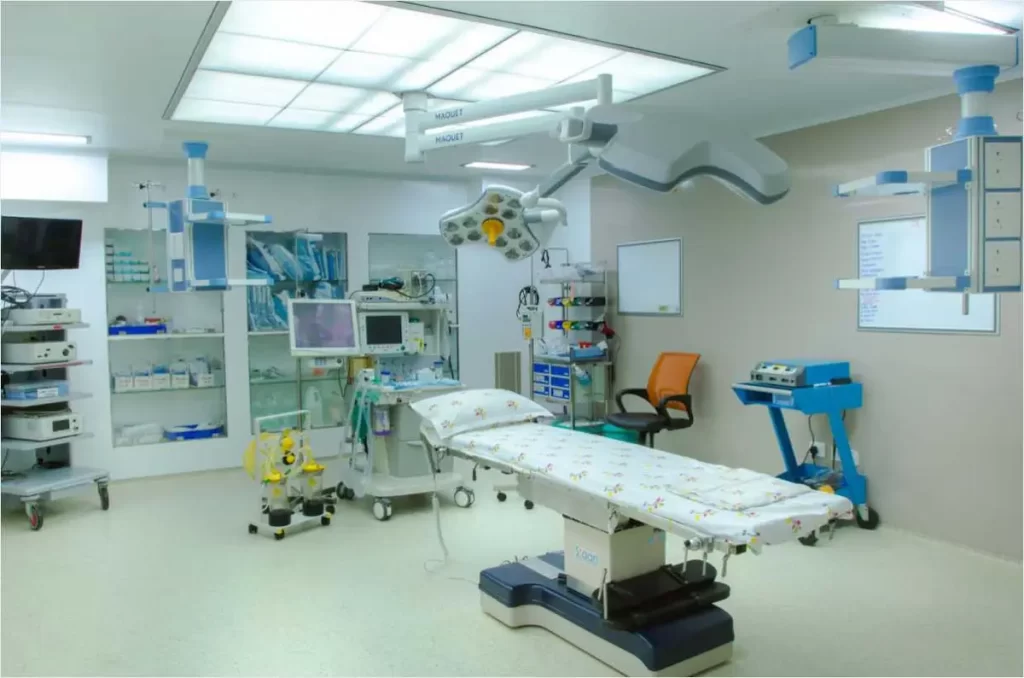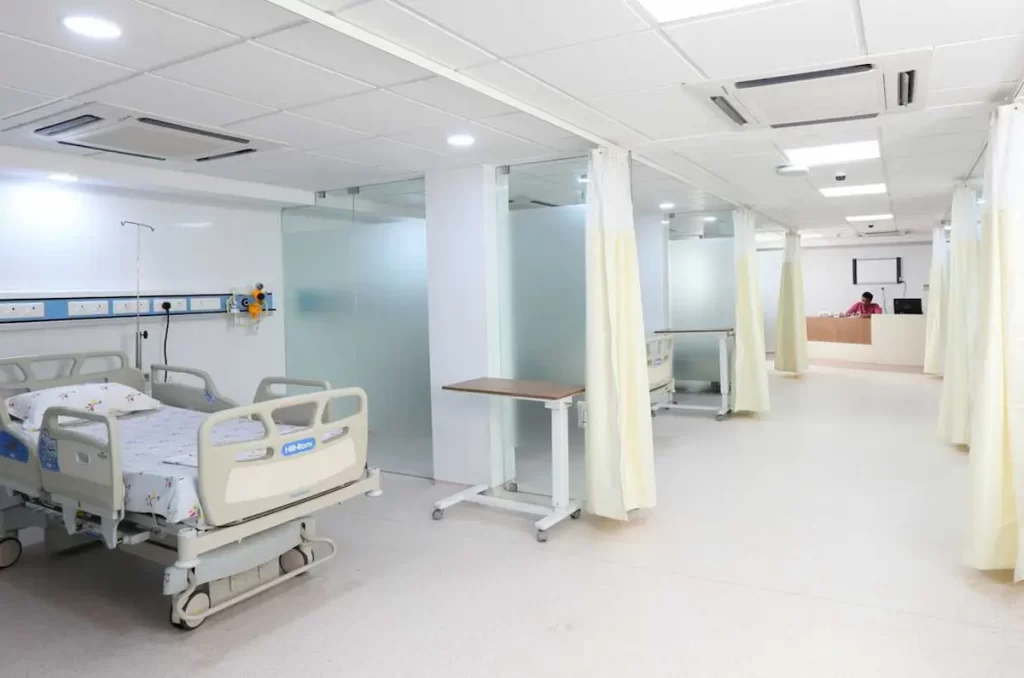Total Hip Replacement (THR) is a surgical procedure aimed at replacing a damaged or worn-out hip joint with an artificial prosthesis. This procedure is commonly performed in patients who suffer from severe arthritis, injury, or other hip joint disorders. The artificial hip, known as a prosthesis, consists of a metal or ceramic ball, a plastic socket, and a stem that fits into the thigh bone.
Total Hip Replacement has become one of the most successful and life-changing surgeries, helping people restore mobility, reduce pain, and regain independence. It is typically recommended when conservative treatments, such as physical therapy or medications, have failed to alleviate symptoms. The procedure improves the patient’s quality of life by providing pain relief, enhanced movement, and the ability to resume daily activities.

The average cost for total hip replacement surgery in India ranges between Rs.3 lakh – 3.50 lakh
95% of adults experience relief from hip pain after this surgery
It is performed mostly for patients aged between 60-80 years of age

If you are considering Total Hip Replacement, understanding the common signs and symptoms can help you identify when surgery may be necessary:
Certain factors may increase the likelihood of needing a Total Hip Replacement. These include:

As our valued patient, you are at the center of everything we do – and that will never change.
Open every day from 8 – 8, with no appointments necessary. Just walk in at a time that works best for you.
We know how busy life can be. That’s why most patients are in and out in less than an hour.

Proper nutrition plays a crucial role in maintaining bone health and promoting recovery after surgery. Key aspects to consider include:
While some risk factors are unavoidable, there are several ways to prevent or delay the need for a hip replacement:

From trouble sleeping to work stress to anxiety to depression, we all have difficulty managing our emotions at times. It’s part of being human. And addressing these issues is a vital part of what we do as a primary care practice, because your emotional well-being is essential to your overall health and wellness.
We’ve redesigned the doctor’s office experience to fit your life, put you at ease, and treat you as a whole person. We create safe and inviting spaces,
ask meaningful questions, give you time to talk, and listen without judgment. Then we work with you on a plan to help you feel your best — whether you want to sleep better, feel calmer, worry less, or get a better handle on your mood.
To continue shedding a light on mental health issues, we teamed up with the award-winning musicians from Bear and a Banjo to create a song showing people they’re not alone. See how the project came to life in the video above — and if you’re struggling, we can help.

The process of diagnosing whether Total Hip Replacement is necessary typically involves the following steps:
Based on the results of these tests, the healthcare provider will recommend whether Total Hip Replacement is the best course of action.
Based on the results of these tests, the healthcare provider will recommend whether Total Hip Replacement is the best course of action.


Hospitals and clinics that provide Total Hip Replacement should have state-of-the-art facilities to ensure the best outcomes:
The recovery time for Total Hip Replacement typically ranges from 6 weeks to 6 months. Patients can start walking with assistance within a few days, but full recovery, including regaining strength and mobility, may take several months. Rehabilitation and physical therapy are crucial during this time to achieve the best results.
As with any surgery, Total Hip Replacement carries risks such as infection, blood clots, dislocation, or nerve damage. However, these risks are minimized with proper surgical techniques, preoperative care, and post-operative monitoring. It’s essential to follow your doctor’s advice to reduce the chances of complications.
A hip replacement can last anywhere from 15 to 25 years, depending on factors like the patient’s age, activity level, and the materials used in the prosthesis. Regular follow-up visits are necessary to monitor the condition of the implant and ensure it is functioning well.